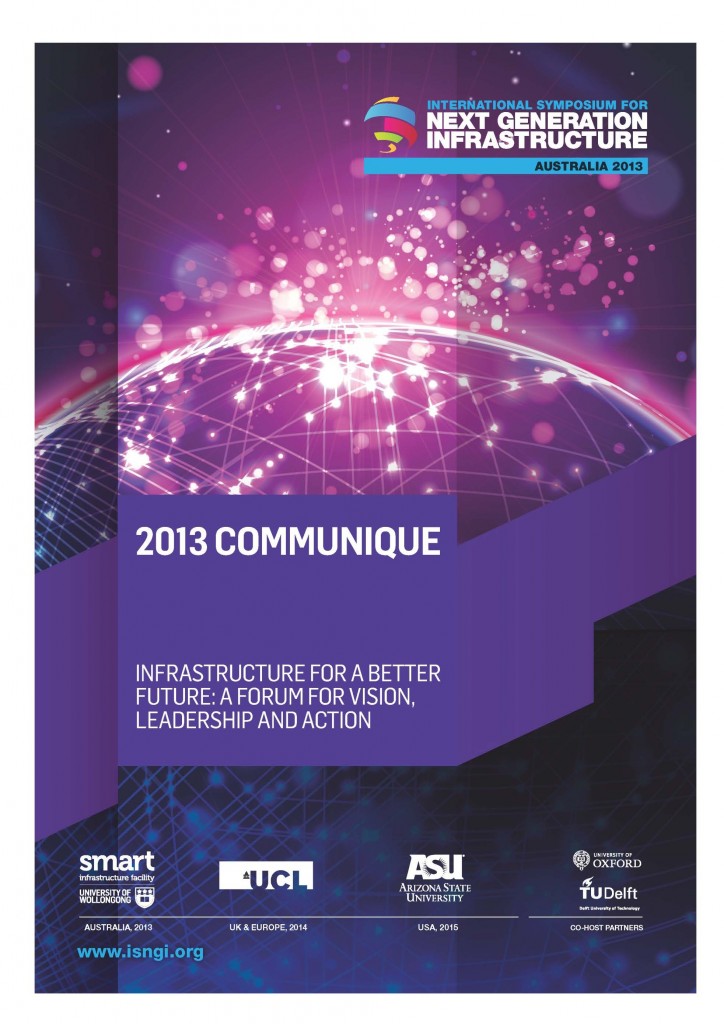Jakarta: Architecture + Adaptation
edited by Dr. Etienne Turpin, Vice-Chancellor’s Postdoctoral Research Fellow, SMART Infrastructure Facility
Adam Bobbette, and Meredith Miller.
[Bilingual edition in English and Bahasa Indonesian]
(Depok: Universitas Indonesia Press, November 2013) Continue reading
EIS Apprentice Achievements
SMART Infrastructure extends our congratulations to two young workshop apprentices from the Faculty of Engineering and Information Sciences who have recently received recognition for outstanding achievements in the Mechanical Engineering Trades area. Continue reading
Using Geospatial Business Intelligence to Support Regional Infrastructure Governance

An interactive, geo-analytical dashboard consists of three reports and a group of filters, (a) drillable map report, (b) radar chart providing a snapshot of utility use, (c) statistical bubble chart, and (d) filter group.
Our academic team have published an article in the journal Knowledge-Based Systems about how the SMART Infrastructure Dashboard (SID), and data-tools like it, can be used to help develop integrated infrastructure solutions for regional towns and cities. Continue reading
ISNGI Communique
The Communique from the 2013 International Symposium for Next Generation Infrastructure (ISNGI) is now available:
Seminar Rethinks the Image of Urban Poverty
Leading urban studies academic, Professor AbdouMaliq Simone from the University of South Australia, visited UOW on Monday, 4 November, as part of the SMART Seminar Series.
Professor Simone has developed one of the most robust and influential theories of “cityness” through recent publications, such as City Life from Jakarta to Dakar: Movements at a Crossroads.
This event coincided with the release of Jakarta: Architecture + Adaptation, which was co-edited by Dr Etienne Turpin.
ISNGI Videos
A playlist of videos from and about the 2013 International Symposium for Next Generation Infrastructure (ISNGI) at the University of Wollongong.
View more videos from SMART Infrastructure Facility at our YouTube channel.
Modelling Urban Liveability
Our Research Director Professor Pascal Perez speaks at TedxUWollongong 2013.
Australia’s Infrastructure Cost Conundrum
Garry Bowditch writes for The Conversation:
Infrastructure is about the long-term growth and prosperity of a nation, but Australia will get very little of this benefit if the cost of building it continues to rapidly escalate.
Australia is becoming increasingly uncompetitive in design and delivery of major projects. This is an unacceptable situation, and a newly commissioned multi-state inquiry by the SMART Infrastructure Facility will identify the key causes and make recommendations to help secure better value for taxpayers’ money.
Continue reading
Driverless cars light the road to Sydney’s future
Writing in the Australian Financial Review, Garry Bowditch says jurisdictions that can adapt quickly to innovation and technology benefit their communities greatly with new jobs, a better investment environment, great universities and more resilient futures.
One hundred and fifty years ago next month, multiple time zones were implemented for the first time anywhere in the world. Then, the US railway system – through the great logic of Sir Sandford Fleming and the sheer power of logistical demands – divided the continent into four different zones, east to west, so every 15 degrees of longitude equalled one hour of difference.
Fleming’s time zones solved a very practical problem: national timetables could be written for the great east-west train journeys from Chicago to San Francisco. The new railroads demanded legislative changes to create time zones that allowed the full benefit of new technology to operate with efficiency and enabled the US to operate as a single coherent economy for the first time. The rest of the story is “modern” history.
Infrastructure and technology are very powerful forces of change.
Don’t wait for science to ‘settle’; decide what society needs
SMART Infrastructure Professorial Fellow Prof. Graham Harris writes in The Conversation:
If you listen to the debate between science and society in most of the West, you get one version or another of the linear model. Science comes first. When it is “settled”, society will know what to do. This is as true in the climate debate as it is in innovation. First comes the “breakthrough” and then the widget gets commercialised. Much of the economic development of the West has been driven by this “knowledge based” worldview.
It worked quite well when the problems were simple and the benefits easily captured – from steam engines to early antibiotics – but the world is changing. Now, the interaction between society, the economy and the environment is much more complex and recursive. Growth and development have changed the world and knowledge of that change is, in turn, changing our response. Knowledge and society interact.

